Wales and Scotland: the unrequited rivalry?
In this blog – originally featured in a Scotland-themed issue of The Football Pink entitled Our Thing – Russell Todd looks back at what has fueled Wales’s – largely unrequited? – rivalry with Scotland.
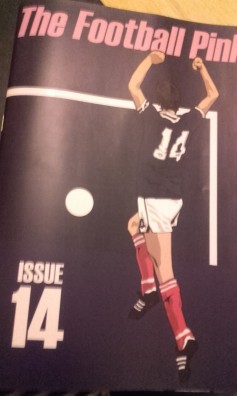 The rivalry between Scotland and England is international football’s oldest, though it’s not the most played (that honour belongs to Argentina and Uruguay). Neither might it be that fierce a rivalry these days, certainly not when compared with the Serbia and Albania fixture and its geopolitical and ethnic backdrop. And Scotland and England have never (yet…) gone to war after a football game like Honduras and El Salvador infamously did.
The rivalry between Scotland and England is international football’s oldest, though it’s not the most played (that honour belongs to Argentina and Uruguay). Neither might it be that fierce a rivalry these days, certainly not when compared with the Serbia and Albania fixture and its geopolitical and ethnic backdrop. And Scotland and England have never (yet…) gone to war after a football game like Honduras and El Salvador infamously did.
Footballing rivalries though need not spawn from ethnic conflict or terse political and cultural histories.
Thus, I present to you another, more under-the-radar footballing rivalry: Wales and Scotland, and it is one that has been exclusively based – at least from a Welsh perspective – on footballing matters.
Ok, so the rivalry is bit lopsided. But as Sir Alex Ferguson was so acutely aware when he coined Manchester City as the “noisy neighbours”, footballing rivalries need not be equally regarded by both protagonists.
For Fergie, Liverpool were the team to beat, bait and ultimately usurp as England’s most decorated club. Manchester United’s gaze was elsewhere as it largely spurned its city rivals’ attentions. And, let’s be honest, England fans’ rivalry with Germany is, like that of the Manchester clubs, largely unrequited; for German fans their traditional rivals are The Netherlands.
Likewise, I suspect – perhaps erroneously? – that England fans regard Argentina as bigger rivals than Scotland these days, even though the fixture has only developed its edge relatively recently, notwithstanding the Antonio Rattin affair in 1966. The fixture has only been played on 15 occasions, but a third of these have been at World Cups where certain incidents have served to stoke the rivalry: Maradona’s Hand of God, and the role played by Diego Simeone in David Beckham’s red card in Sapporo. Both of which built on and cemented the enmity caused initially by the Falklands War.
There is a parallel between the England-Argentina rivalry and Wales-Scotland rivalry too, and it’s not that Wales has invaded the Outer Hebrides. So in the same way the England-Argentina rivalry is partly fueled by the injustice of Shilton and Beckham being conned and cheated, the Welsh still resent roles played by Don Masson, the late Davie Cooper and, mainly, Joe Jordan.
The tribal, partisan nature of fan loyalties is such that injustices are branded in fans’ collective consciousness, and passed down through the generations. Grudges are held, whether that’s against refs, certain clubs or certain opposing players; and are inherited, learned and borne by successive generations of fans. That’s just how it is.
That said, in truth Wales have annoyingly few rivals. The Wales-England rivalry to me, and I suspect many other Welsh fans, is largely a construct. The media all too often lazily imports and tries to repackage the countries’ more genuine rivalry from rugby union. The Euro 2016 clash was more appealing to the media than it was for most fans. If we’re honest Wales barely figures on England’s footballing radar. Indeed, since the demise of the Home Championships in 1984 we have only faced each other competitively; in other words England has not chosen to play Wales in a friendly in over 30 years. Wales has played the other British Isles nations several times in the intervening period. And actually that’s fine. Many Welsh fans find the still all-too-prevalent “as long as we beat the English” attitude to be redolent of a national insecurity and insularity that is unbecoming of our post-devolution status, with our nascent legislature, emerging civic infrastructure and emboldening national identity hopefully one day matching our rich cultural and linguistic identity. So, no, not England.
But the inherent tribalism in football is one of its enduring features, for better and for worse. Supporting a club or country isn’t as much fun if there’s a not a rival to despise. And for us Welsh it is the Scots. Whether it’s reciprocated or not is immaterial. Through the many years of hurt Scotland were never far away
The Wales-Scotland fixture has been played 105 times and the results are almost as lop-sided as the rivalry: Wales only 23 wins, Scotland 61. It took Wales until the 14th attempt to avoid defeat in the fixture and the 30th attempt to finally win; which when considered, makes the record since 1930 – the date of that elusive first win – a little more even. In fact Wales’s current run of results against Scotland is arguably the best: only one defeat in eight games dating back to 1985, and six victories.
Until 1984 the fixture was primarily confined to the British Home Championship where it was an h’ors d’oeuvre for Scotland’s clash with the Auld Enemy. Although on four of these occasions – ahead of the World Cups of 1950 and 1954 and twice as qualification for the 1968 European Championships – the Championship clash also served as a competitive qualifying fixtures, in which Wales failed to win.
Having won its qualifying group for the only time in its history ahead of the 1976 European Championships, Wales had narrowly missed out on qualifying for the final stages in Yugoslavia thanks to some dubious East German refereeing and typical bad luck (see also Iceland 1981, Czechoslovakia 1983, Romania 1993, Russia 2003). So, keen to make an impression in the next campaign for the 1978 World Cup a strong, experienced and settled Welsh squad was drawn in a tough three nation group with Scotland and reigning European champions Czechoslovakia. So for the first time Scotland and Wales were due to meet outside of the Home Championship.
Having played each other once with each side winning one and losing one Wales were in the driving seat by virtue of goal difference; it had become the first team to beat Czechoslovakia in 22 games. Scotland then also beat Czechoslovakia to top the group ahead of a visit to Anfield where the Football Association of Wales had opted to play the fixture. Ninian Park was due to host the game but a drastic reduction in its capacity due to a late safety assessment forced the FAW’s hand to seek pastures beyond Wales for the game, with the smaller Racecourse ground, traditionally a successful venue for Wales, overlooked. Wembley was considered but in a shameful display of short-sightedness, fuelled by parlous finances, the FAW opted to take the game to Anfield. Wales manager Mike Smith gamely suggested Welsh fans would “make themselves heard” but it was clear running up to the game that although a bumper crowd was expected, sadly, for Wales, it was largely Scottish. 51,000 people, in which it is said Scots outnumbered Welsh by 5 to 1, descended on Liverpool for a game in which a Scottish a win guaranteed qualification for Argentina ’78.
As Phil Stead chronicles in his exquisite history of the Welsh team Red Dragons, despite missing its first choice centre backs, Ian Evans and Dave Roberts, Wales had played well for over an hour of the tie and despite the hostile, overwhelmingly Scottish atmosphere. In the 79th minute Dave Jones, drafted in at the last minute for the crocked Roberts, challenged the abrasive, angular Joe Jordan in an attempt to head clear a ball into the Welsh box. Both raised their arms for leverage with the ball striking Jordan’s long-sleeved dark blue. The short-sleeved Jones was penalised however and the penalty was awarded. Of course these things happen in football. But like Cristiano Ronaldo winking when Wayne Rooney was red carded, Jordan’s bête noir status was cemented when he walked away kissing the offending sleeve. That he denied it for so long merely rubbed salt into old wounds. Don Masson tucked away the penalty and Kenny Dalglish added a late second. Wales’s dreams were in tatters but the game proved epochal. As Stead writes:
“There was something particularly cruel about the game – the realization that life could be unfair – the shame of being outnumbered in a home game – the stark reality that more Scots cared about their football. It was a tough lesson to take, and the memory of it still fires the heart of Welsh football”
Heartache upon heartache followed in the years afterwards. I was less than a year old when the game was played. For my generation the names ‘Bodin’ and ‘Romania’ replace ‘Jordan’ and ‘Scotland’ to define penalty-induced heartbreak. But ahead of that Romania game in 1993 I was acutely aware of the injustice and anger (and the shame; but we didn’t talk about that…) of Anfield because it is passed onto Welsh fans with mother’s milk. Indeed, manager Terry Yorath was still smarting from that night as that Romania game loomed.
Did that fateful Anfield evening in 1977 cause a fog of self-pity and melancholia to engulf the Wales team? Were we scared to take those final steps for qualification? Were we cursed? More pertinently, was it Scotland’s fault? Whatever, it was definitely Jordan’s.
 The 1986 World Cup provided for an opportunity to avenge Jordan’s deceit, with Scotland coming to Cardiff for another group decider. Never missing the opportunity to repeat a mistake rather than learn from one the FAW again put short-term financial self-interest ahead of longer term playing interests by announcing rugby’s National Stadium would host the game. In Red Dragons Stead notes however that by reneging on the deal in the aftemath of the Hesyel tragedy, the Welsh Rugby Union conveyed a blessing on the FAW that it ill-deserved. It meant that Ninian Park would finally earn the chance to welcome a talented Scottish side for an all-important decider. However, Wales had its most talented side since 1958 with the likes of Hughes, Rush, Ratcliffe and Southall and home advantage making Wales marginal favourites in a tie in which Scotland needed only a draw to reach a play-off for Mexico against Oceania opposition; Wales needed a win.
The 1986 World Cup provided for an opportunity to avenge Jordan’s deceit, with Scotland coming to Cardiff for another group decider. Never missing the opportunity to repeat a mistake rather than learn from one the FAW again put short-term financial self-interest ahead of longer term playing interests by announcing rugby’s National Stadium would host the game. In Red Dragons Stead notes however that by reneging on the deal in the aftemath of the Hesyel tragedy, the Welsh Rugby Union conveyed a blessing on the FAW that it ill-deserved. It meant that Ninian Park would finally earn the chance to welcome a talented Scottish side for an all-important decider. However, Wales had its most talented side since 1958 with the likes of Hughes, Rush, Ratcliffe and Southall and home advantage making Wales marginal favourites in a tie in which Scotland needed only a draw to reach a play-off for Mexico against Oceania opposition; Wales needed a win.
Mark Hughes put Wales ahead only for history to repeat itself: a late, dubious handball decision against another David. For Jones in 1977, read Phillips in 1985, who could not avoid a point blank shot in the area from striking his raised arm. The late Davie Cooper rescued the point Scotland needed and caused Wales to lament yet again falling at the final hurdle. It might well have been the case the Scots would have demonstrated more humility than Jordan had eight years earlier, but it was academic when the evening was overshadowed by Jock Stein’s tragic death in the dugout.
Roll forward to the 2000s and the results have been more evenly-matched and though a Robert Earnshaw inspired 4-0 friendly victory in 2004 and an Aaron Ramsey inspired 3-0 win in 2009 were rollicking good fun – and which helpfully for Scottish fans prompted the SFA to fire the loathed Berti Vogts and George Burley respectively; Craig Levein, too, was ousted soon after losing 2-1 in Cardiff in 2012 – they didn’t temper the burning resentment at earlier travails at the hands of Scotland, as we still counted the years since a major tournament presence.
When Wales and Scotland were drawn again together ahead of the 2014 World Cup Wales were still coming to terms with Gary Speed’s untimely passing and Chris Coleman was still growing into his managerial role. The Scots seemed buoyant at their prospects of qualification and to be fair achieved good results in the group. But puncturing those aspirations with home and away wins was very gratifying. Wales snatched the victory in a rain-sodden Cardiff in late 2012, with Gareth Bale, the standout player in the game, scoring in the 81st and 87th minute to turn around a 1-0 deficit. That he won the game with such a screamer having been treated to some particularly robust treatment from Scottish players was sweet. That the chief protagonist had been Charlie Adam who Bale then breezed past leaving adrift to strike the killer blow, all the more so.
Adam had ended Bale’s 2010/11 season prematurely with a typically crude challenge while at Blackpool. Having subsequently moved to Liverpool, Adam was branded by Bale a coward for a foul in a pe-season match against Spurs in Baltimore and refused an apology from the Scot.
Revenge, it is said, is a dish best served cold and in the torrential, chilling Cardiff rain Wales served up a healthy-sized portion with Bale as the head chef.
The Scottish press and fans branded Bale a cheat and a diver for the challenge that led to the penalty that brought the scores level in Cardiff and the bitterness at losing a game they were winning in the 80th minute was understandable. The Scottish press gave Wales very little hope and little respect ahead of the return at Hampden. The Daily Record called Scotland’s first half display “baffling” and “desperate” in Gordon Strachan’s home debut as manager. That they went in at the break a goal up was all the more mystifying for Wales who, though not given any credit by the Record, had played with tempo and verve in what was their best half of football under Coleman up to that point. The ‘one man team’ label attached to Wales was still unfairly lingering at Euro 2016; so in early 2013 it was being used with abandon. When an unwell Bale failed to emerge from the dressing room for the second half Wales’s prospects did not look great. But they were not as bleak as the Daily Record considered they were as they condescended Wales thus:
“Scotland were 1-0 up against a Baleless Wales. International football doesn’t get much less challenging than this.”
In the Hampden snow, temperatures plummeted and Coleman’s Wales side began to suggest it had backbone, collectiveness and will to win as it once again overturned a deficit. “Who are ya?” chanted the Scottish fans as Jonny Williams came on for his international debut to replace Bale. Within half an hour they knew. Ghosting past a lumbering Adams – making the goal that little bit sweeter – Williams penetrated the space between midfield and defence in a manner the sickly Bale had found beyond him to feed Andy King to cross for Hal Robson-Kanu to notch his first international goal and the winner. Until his astonishing matchwinning Euros performances it was the pinnacle of Robson-Kanu’s international career; and is an indelible image for Wales fans.
The Daily Record called the campaign “a never ending humiliation”. Losing to Wales was clearly beneath its national team. Like much of the Scottish press it could not bring itself to commend Wales’s grit, desire, spirit and its ability.
The Tartan Amy is one of sport’s great sights, but from a Welsh perspective they seem to be stuck in the past, trading on past glories. And so when Wales reached the European semi final to complement its World Cup quarter final we took no little relish in pointing this out to our Scottish counterparts on social media whose team has failed to get past the first round in every one of its ten tournament appearances. Is it big? Is it clever? Absolutely not. Was it extremely satisfying? You bet ya. And to associate matches against Scotland with getting the rub of the green (Fletcher’s disallowed goal in Cardiff, Snodgrass’s red card at Hampden) was not only novel but timely. If ever there was a team that deserves a bit of luck, it is Wales.
In a footballing context hindsight suggests the games in 2012 and 2013 were key in imbuing this Wales side with a belief that complemented the camaraderie, promise and talent that it has in spades. Gareth Bale has said that this Wales side is more interested in making its own history rather than repeating that of their predecessors. So do the 2012 and 2013 games make up for 1977 and 1985? Not really; but perhaps they should. Like Bale et al, perhaps as fans we have to let it go as well. Making history, as this summer has proven, is so much more fun than dwelling on or wallowing in it.
But it is not that simple for fans is it?
An edited version of this first appeared in issue 14 of The Football Pink which was dedicated to Scottish football

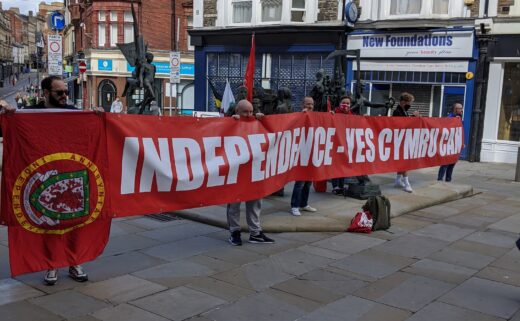









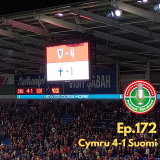
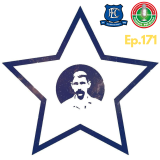

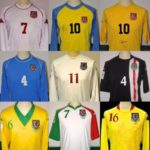







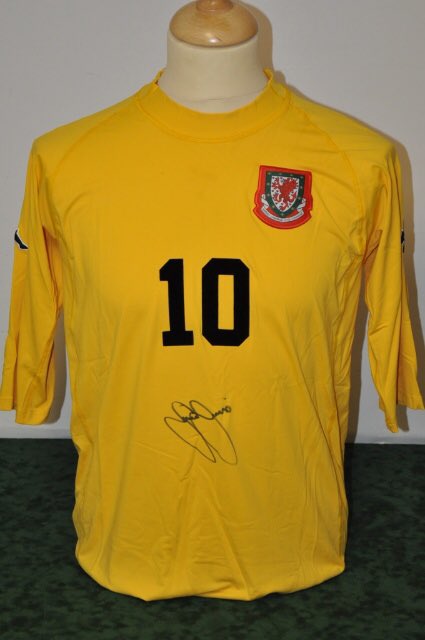

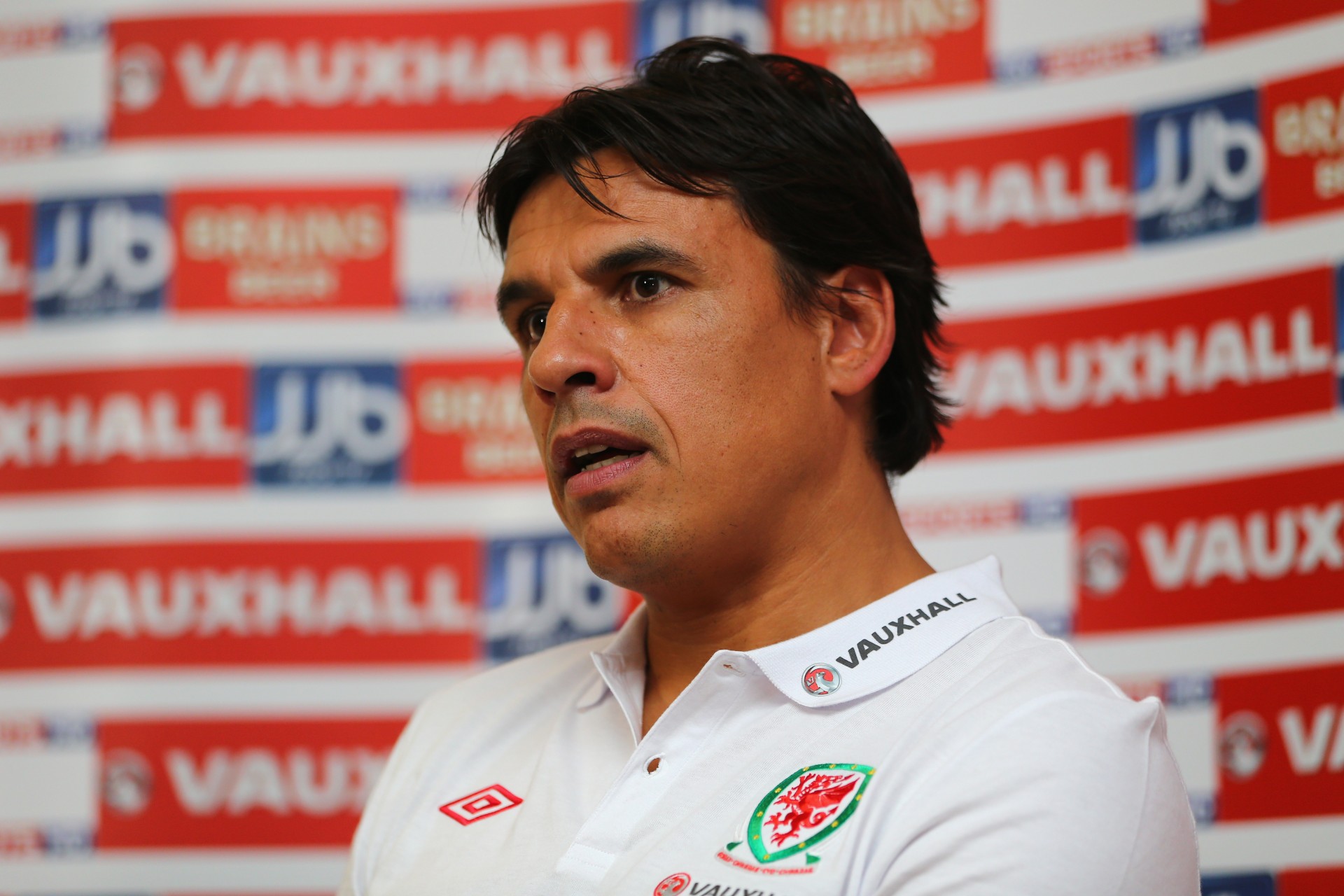
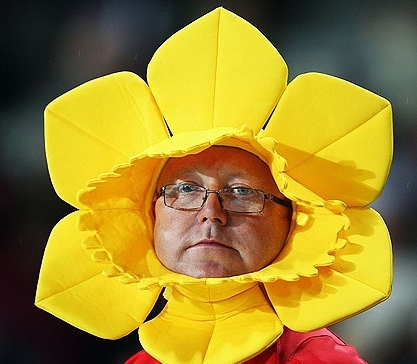


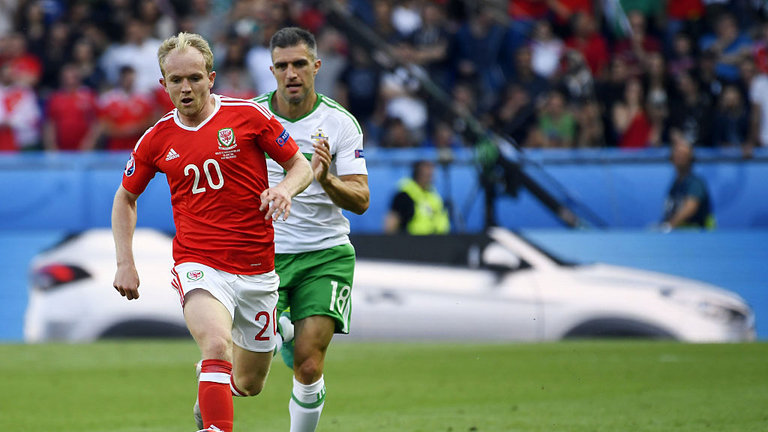
Superb read, nothing like beating Scotland. Always have them as our nearest rival as opposed to England.
Same here Mark. England have had so many bigger fish to fry; we’re not on their radar. Playing them has held little appeal